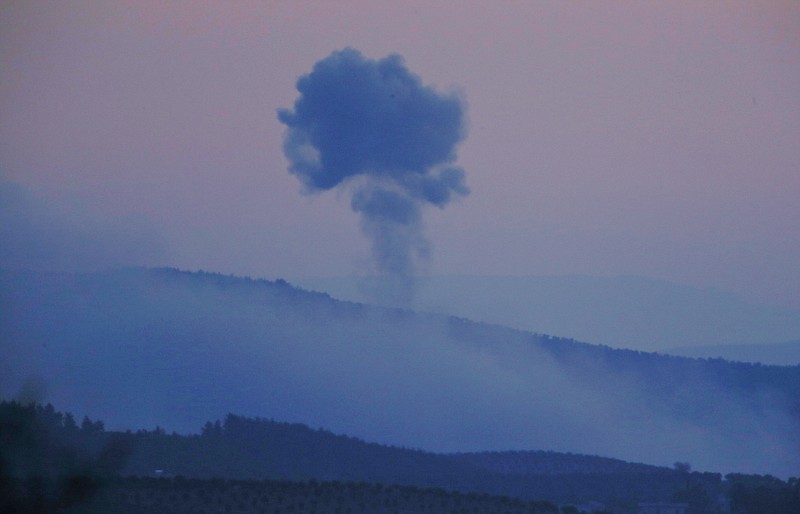KOCABEYLI, Turkey (AP) - Turkish jets bombed the Kurdish-controlled city of Afrin in northern Syria on Saturday, as President Recep Tayyip Erdogan promised to expand Turkey's military border operations against a Kurdish group that has been the U.S.'s key Syria ally in the war on the Islamic State group.
The raids came on the heels of a week of sharp threats by the Turkish government, promising to clear the Kurdish People's Protection Units, or YPG, from Afrin and its surrounding countryside, also called Afrin. Turkey's military is calling the campaign Operation Olive Branch.
Turkey said the YPG - a group it considers a terrorist organization - is an extension of an outlawed Kurdish rebel group fighting inside its own borders, and it has found common cause with Syrian opposition groups who view the YPG as a counter-revolutionary force in Syria's multi-sided civil war.
Turkish Prime Minister Binali Yildirim said a ground offensive could begin Sunday, but the state run Anadolu News Agency reported Syrian forces backed by Ankara already penetrated the Kurdish enclave. They crossed over from Turkey but were turned back by the YPG, according to Rojhat Roj, a Kurdish spokesman.
Associated Press journalists at the Turkish border saw jets bombing positions in the direction of Afrin, as a convoy of armed pickup trucks and buses believed to be carrying Syrian opposition fighters traveled along the border. Video from Turkey this week showed the military moving tanks to the frontier.
Roads out of the Afrin were closed and the YPG were not allowing anyone to leave the city, but morale was high, according to a resident who was reached by phone.
"So far the People's Protection Units have not called on the people to mobilize," said Ramzi Hamidi. Turkey, he said, "will learn a lesson they have not learned before."
Ten civilians were wounded in the airstrikes, three seriously, according to Roj.
Turkey prepared around 10,000 Syrian fighters to storm Afrin, according Rami Abudrrahman, director of the Syrian Observatory for Human Rights monitoring group. A rebel commander speaking to the AP by phone from north Syria said there were thousands of fighters positioned in Azaz, at the frontier with the Kurdish enclave, awaiting orders. Another commander said hundreds more were stationed in Atmeh, south of Afrin. The officials spoke on the condition of anonymity because they were not authorized to speak to the media.
The Russian Defense Ministry said, meanwhile, it was pulling back troops that had been deployed near Afrin, two days after Turkey's military and intelligence briefs travelled to Moscow to discuss the planned operation. It said the group of observers was being relocated to another area. It was not immediately clear how many troops were affected by the move.
The YPG is the driving force behind a coalition of north Syrian forces allied with the U.S. to battle the Islamic State group. With U.S. support, including around 2,000 embedded forces, the coalition now controls close to a quarter of Syrian territory, concentrated mostly to the north and east of the Euphrates River.

